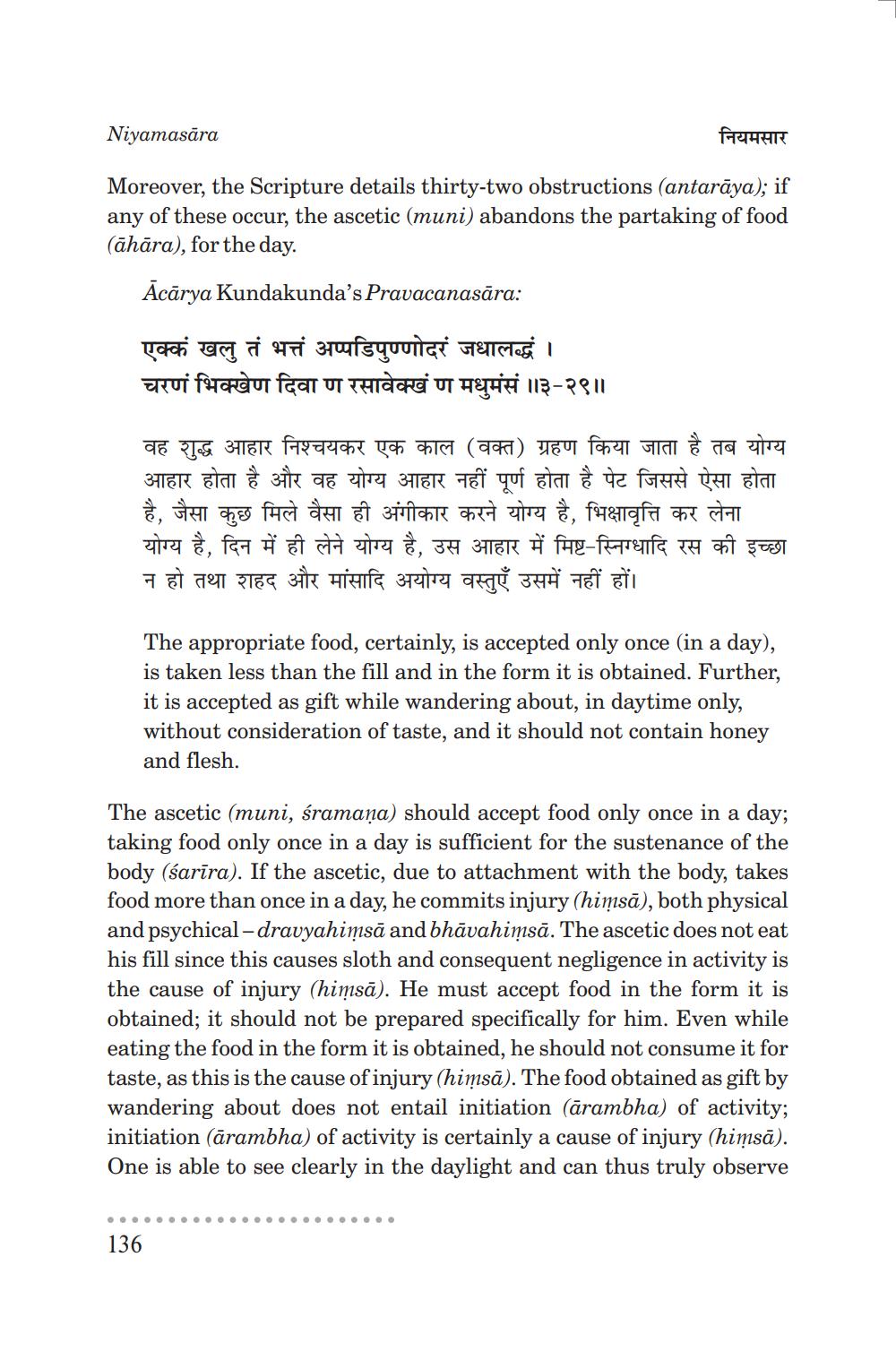________________
Niyamasara
नियमसार
Moreover, the Scripture details thirty-two obstructions ( antarāya); if any of these occur, the ascetic (muni) abandons the partaking of food (āhāra), for the day.
ācārya Kundakunda's Pravacanasāra:
एक्कं खलु तं भत्तं अप्पडिपुण्णोदरं जधालद्धं ।
चरणं भिक्खेण दिवा ण रसावेक्खं ण मधुमंसं ॥३-२९॥
वह शुद्ध आहार निश्चयकर एक काल ( वक्त ) ग्रहण किया जाता है तब योग्य आहार होता है और वह योग्य आहार नहीं पूर्ण होता है पेट जिससे ऐसा होता है, जैसा कुछ मिले वैसा ही अंगीकार करने योग्य है, भिक्षावृत्ति कर लेना योग्य है, दिन में ही लेने योग्य है, उस आहार में मिष्ट-स्निग्धादि रस की इच्छा न हो तथा शहद और मांसादि अयोग्य वस्तुएँ उसमें नहीं हों ।
The appropriate food, certainly, is accepted only once (in a day), is taken less than the fill and in the form it is obtained. Further, it is accepted as gift while wandering about, in daytime only, without consideration of taste, and it should not contain honey and flesh.
The ascetic (muni, śramana ) should accept food only once in a day; taking food only once in a day is sufficient for the sustenance of the body (śarīra). If the ascetic, due to attachment with the body, takes food more than once in a day, he commits injury (himsa), both physical and psychical-dravyahimsa and bhavahimsa. The ascetic does not eat his fill since this causes sloth and consequent negligence in activity is the cause of injury (himsā). He must accept food in the form it is obtained; it should not be prepared specifically for him. Even while eating the food in the form it is obtained, he should not consume it for taste, as this is the cause of injury (himsa). The food obtained as gift by wandering about does not entail initiation (ārambha) of activity; initiation (ārambha) of activity is certainly a cause of injury (himsā ). One is able to see clearly in the daylight and can thus truly observe
136




